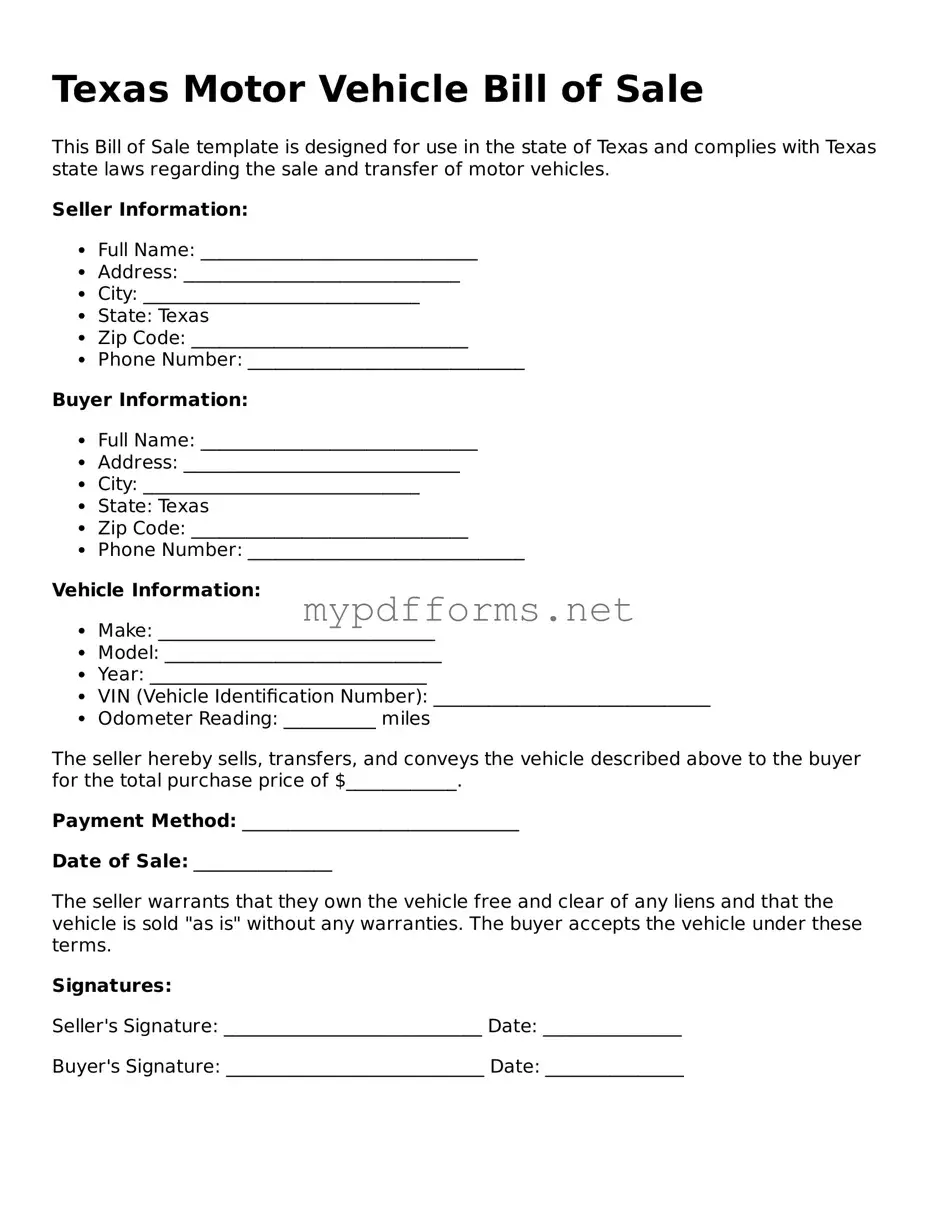The Texas Vehicle Registration Application is similar to the Motor Vehicle Bill of Sale in that both documents are essential for the transfer of vehicle ownership. While the Bill of Sale serves as proof of the sale transaction, the Vehicle Registration Application is necessary for registering the vehicle in the new owner's name. Both forms require details about the vehicle, such as the make, model, and Vehicle Identification Number (VIN), ensuring that the transaction is properly documented and recognized by the state.
The Texas Title Application is another document closely related to the Motor Vehicle Bill of Sale. This form is used to apply for a new title after a vehicle sale. Just like the Bill of Sale, the Title Application requires the seller's and buyer's information. It also includes details about the vehicle itself. Completing both documents is crucial for a smooth transition of ownership and for establishing legal rights to the vehicle.
The Texas Odometer Disclosure Statement is also similar to the Motor Vehicle Bill of Sale. This document is required when transferring ownership of a vehicle and provides an official record of the vehicle's mileage at the time of sale. Both forms protect the buyer by ensuring that they are aware of the vehicle's condition and history. Accurate odometer readings can help prevent fraud and misrepresentation during the sale process.
The Texas Application for Duplicate Title parallels the Motor Vehicle Bill of Sale in its role during the vehicle ownership process. If a vehicle title is lost or damaged, this application allows the owner to obtain a replacement title. Like the Bill of Sale, it requires specific information about the vehicle and its ownership history. Both documents serve to clarify ownership rights and facilitate legal transactions involving the vehicle.
The Texas Vehicle Transfer Notification is another document similar to the Motor Vehicle Bill of Sale. This form notifies the Texas Department of Motor Vehicles (DMV) that a vehicle has been sold. While the Bill of Sale acts as proof of the sale between the buyer and seller, the Vehicle Transfer Notification updates the state’s records. Both forms ensure that the transaction is documented and that the previous owner is no longer held responsible for the vehicle.
If you wish to manage someone else's affairs effectively, understanding a Power of Attorney document for financial decisions is essential. This form allows a designated person to act on behalf of another in matters relating to their finances, ensuring that those in need receive proper representation during challenging times.
Finally, the Texas Affidavit of Heirship for a Motor Vehicle is akin to the Motor Vehicle Bill of Sale when it comes to transferring ownership under specific circumstances, such as inheritance. This document is used when a vehicle is passed down through a will or as part of an estate. Both forms require details about the vehicle and its ownership, ensuring that the transfer is legally recognized. They help clarify ownership rights and provide a clear path for transferring vehicles without traditional sales transactions.

